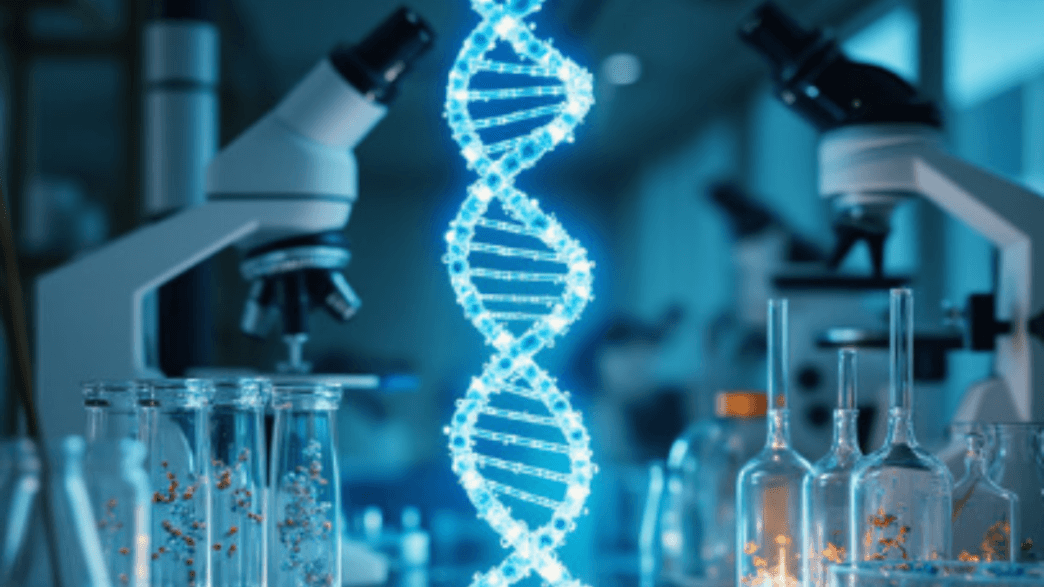Genetic engineering is one of the most groundbreaking scientific fields, offering immense potential for medicine, agriculture, and even the future of humanity. By modifying DNA, scientists can cure genetic disorders, create disease-resistant crops, and even explore the possibility of human enhancements.
However, along with these exciting innovations come ethical dilemmas. Should we be allowed to edit human embryos? What are the long-term risks of genetically modified organisms (GMOs)? Who gets to control and regulate genetic modification?
In this article, we’ll explore the science behind genetic engineering, its groundbreaking applications, and the ethical concerns that come with altering the building blocks of life itself.
Understanding Genetic Engineering
What is Genetic Engineering?
Genetic engineering is the process of modifying an organism’s DNA to achieve a specific outcome. Scientists alter genes using advanced techniques to create desired traits, whether for medical treatments, agricultural improvements, or research purposes.
At its core, genetic engineering involves:
- Cutting DNA using molecular tools
- Inserting, deleting, or modifying genes
- Testing and observing the effects
This technology has evolved significantly, allowing precise and targeted changes at the genetic level.
Key Techniques in Genetic Engineering
1. CRISPR-Cas9: The Gene-Editing Revolution
CRISPR (Clustered Regularly Interspaced Short Palindromic Repeats) is a powerful tool that allows scientists to cut and edit DNA with high accuracy.
- Used to correct genetic disorders like sickle cell anemia
- Has potential applications in eradicating inherited diseases
- Raises ethical concerns about modifying human embryos
2. Gene Therapy: Treating Genetic Disorders
Gene therapy replaces defective genes with healthy ones to treat conditions such as:
- Cystic fibrosis
- Muscular dystrophy
- Certain forms of blindness
3. Synthetic Biology and Its Applications
Scientists use synthetic biology to create entirely new genetic sequences, leading to advancements like:
- Artificially designed bacteria that consume pollutants
- Engineered viruses for targeted cancer treatments
The Innovations of Genetic Engineering
Genetic Engineering in Medicine
One of the most promising areas of genetic engineering is medical advancements:
- Curing genetic disorders: By editing faulty genes, scientists can eliminate hereditary diseases.
- Personalized medicine: Genetic information helps doctors tailor treatments to individual patients.
- Cancer research: Genetic modification allows for targeted therapies that attack cancer cells without harming healthy ones.
Genetic Modification in Agriculture
GMOs (Genetically Modified Organisms) have revolutionized agriculture by:
- Increasing crop yields to feed a growing population
- Making plants resistant to pests, diseases, and harsh weather
- Reducing the need for chemical pesticides
Despite these benefits, some argue that GMOs pose risks to biodiversity and human health, fueling ongoing debates about their safety.
Cloning and Genetic Replication
Cloning involves creating an exact genetic copy of an organism. While famous examples like Dolly the sheep sparked interest, cloning technology is still evolving. Potential applications include:
- Organ cloning for transplants
- Preserving endangered species
- Cloning livestock for sustainable farming
The Ethical Dilemmas of Genetic Engineering
The Moral Debate on Human Gene Editing
One of the most controversial aspects of genetic engineering is editing human embryos to eliminate diseases or enhance traits. The ethical questions include:
- Should parents be allowed to design their children?
- Could genetic modifications create social inequalities?
- What are the risks of unforeseen genetic consequences?
Ethical Concerns in Genetic Research
With the power to alter life comes significant responsibilities:
- The possibility of genetic discrimination by employers or insurance companies
- Unintended mutations that could be passed down through generations
- The potential for “designer babies” and human enhancement beyond medical needs
The Regulation of Genetic Engineering
Governments and scientific organizations have established strict regulations to prevent unethical genetic modifications. However, regulations vary worldwide, raising concerns about:
- Biohacking and unregulated genetic experiments
- The commercialization of genetic modification
- Global disparities in genetic advancements
The Future of Genetic Engineering
The Potential for Genetic Enhancements
Some scientists believe genetic engineering could extend human lifespan, enhance intelligence, or improve physical abilities. However, the ethical debate continues:
- Where do we draw the line between treatment and enhancement?
- Could genetic modifications create a genetic elite?
Solving Global Challenges with Genetic Engineering
Genetic engineering could help combat climate change, food shortages, and diseases by:
- Creating crops that thrive in extreme weather
- Developing biofuels from genetically modified algae
- Engineering bacteria to clean up pollution
The Role of AI in Genetic Research
Artificial intelligence is transforming genetic research by:
- Speeding up DNA sequencing and analysis
- Predicting genetic diseases before symptoms appear
- Enhancing precision in gene-editing techniques
Conclusion
Genetic engineering holds immense potential to revolutionize medicine, agriculture, and even human evolution. However, ethical concerns surrounding genetic modifications must be carefully considered to ensure responsible innovation.
Balancing scientific progress with ethical responsibility will be the key to unlocking the full potential of genetic engineering while protecting humanity’s future.









